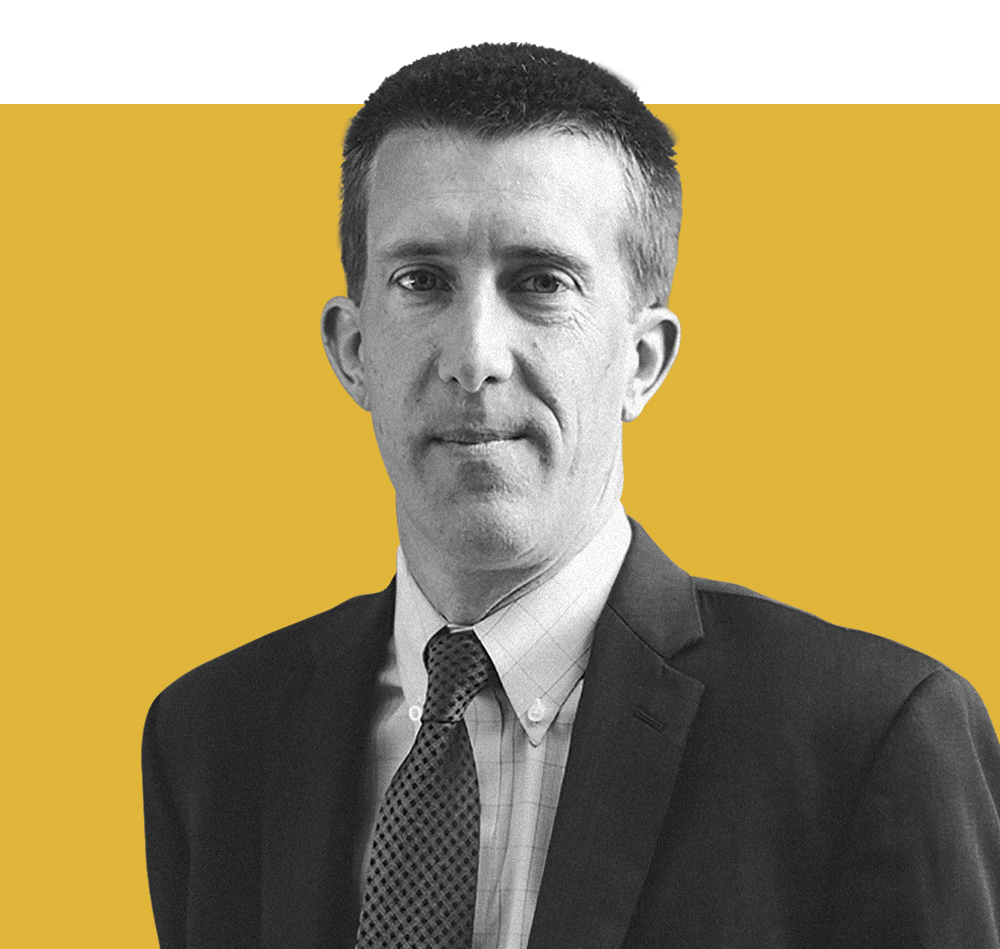
t this moment of national reckoning over racial inequities, the extent to which the criminal justice system is rife with systemic bias has come as a shock to many. For Patrick Mulvaney L’08, the Managing Attorney for Capital Litigation at the Southern Center for Human Rights, such biases are the persistent undercurrent of much of his work.
Mulvaney has been with the capital litigation unit of SCHR for the past 12 years, the last seven as its managing attorney. Few areas of the law are as tainted by bias as capital cases, he observes. “Race and poverty are the defining features of the death penalty system,” he says. Although fewer death sentences are being handed down now than in earlier decades, as older cases wind their way through the appeals process, more executions are looming. In Georgia, for example, there has been only one new death sentence in the past five years, but 19 executions of defendants who had previously been sentenced.
Two of SCHR’s capital cases in which Mulvaney was involved have made it to the United States Supreme Court in recent years. In 2016, the court reviewed the case of Timothy Foster, a Black defendant who was tried in 1987 in Georgia for the murder of a white woman by an all-white jury, after the state excluded all four Black prospective jurors with preemptory strikes. Evidence discovered years later showed that, although prosecutors had cited other reasons for these strikes, potential jurors’ names were identified in jury selection notes by race. The Supreme Court ruled 7 to 1 that there had in fact been race discrimination at trial. Foster’s conviction was vacated and the case is pending retrial.
Earlier this year, the Georgia Supreme Court ruled that jury selection notes from the same prosecutor revealed intentional discrimination in the case of defendant Johnny Gates. The prosecutor had tried five capital cases in five years around the time of Gates’s trial, and the state had struck all 27 prospective Black jurors in those trials. All five cases were tried before all-white juries. In Gates’s case, in addition to the discrimination evidence, new DNA evidence discovered in 2018 showed that the state had convicted the wrong person. Gates was released earlier this year after 43 years in prison, 26 of them on death row. Mulvaney and SCHR worked with the Georgia Innocence Project in representing Gates. These cases “show how much race discrimination can undermine the integrity of the proceedings, instead of having a trial where the state is simply presenting the evidence,” says Mulvaney.
“The problems we’re talking about with respect to race are not limited to the death penalty,” Mulvaney emphasizes. He and his colleagues at SCHR also work on many non-capital cases of extreme sentencing, often involving the disproportionate sentencing of Black men for non-violent drug offenses. Twelve of their clients who had been sentenced to life without parole have been released in recent years, as have 18 who had been given lengthy sentences, such as 40 or 60 years.
The other United States Supreme Court case, McWilliams v. Dunn, involved an indigent Black defendant on death row in Alabama. The court found in 2017 that McWilliams had been denied his constitutional right to a mental health expert in preparing his defense and his death sentence was vacated.
As recent news headlines have underscored, examples of racial bias in the criminal justice system are not a relic of the past or the fault of a few bad actors; instead, they remain a persistent blight on the legal landscape. “The criminal justice system still has serious problems with race discrimination, and we all have a lot of work to do in trying to remedy that,” Mulvaney says. “It’s on all of us, not just by pointing the finger at an individual person who committed misconduct in an individual case, to rethink the system and make it better.” Despite the scale of the problem, Mulvaney is optimistic. “I have a lot of hope for the future, and I think hope drives our office as we try to work toward equality, dignity, and justice in the criminal legal system,” he says. “We also recognize that we have a long way to go.”